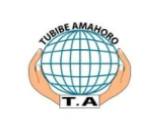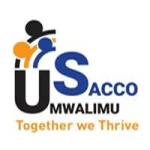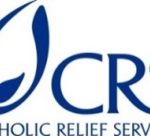TUBIBE AMAHORO is a non-governmental organization dedicated to promoting human rights, socioeconomic progress, and gender equality in Rwanda.
Website:
Association Tubibe Amahoro (TA)
Western province, Karongi District, Bwishyura sector
Website: https://ta–rwanda.org
Email: sowpeace@gmail.com
Contact: KABANO Pierre Célestin, tel. 0788409736
TERMS OF REFERENCE TO RECRUIT A COMPANY HELPING IN Empower cooperatives with skills on integrated pest management (IPM) and Facilitate women farmers’ cooperatives to access vermicomposting structures. IN 11 SECTORS OF MUSANZE (2), KARONGI (2), NYANZA (3), GISAGARA (3), NYARUGURU (1).
PROJECT: Improving Food Security and Boosting Farm Income for Women Smallholder Farmers in Rwanda-IFS Project.
1. Background to TUBIBE AMAHORO (TA)
Tubibe Amahoro Association (TA) is a community-based, a human rights promoter and community development led organization founded in 1995 right after the genocide against the Tutsi in Rwanda by some of the survivors and human rights defenders. TA was granted the legal status through the Ministerial Order no 41/08.11 of 31/03/2011 found in official gazette (OG) no 33 of 15/08/2011[1]. TA dreams to “Achieve a society of equity in which laws and human rights are respected by everyone” and, therefore, defining its mission as “To promote respect for human rights and integral socioeconomic progress of Rwandan population by emphasizing civic participation, access to justice, sustainable community livelihood and gender promotion.” Thus, based on that strategic orientation, TA basically strives for the fulfilment of the citizens’ rights in its all aspects [human dignity, civil rights, economic rights, justice, equality, positive peace and unity among Rwandans.
Strategically, TA’s interventions articulate on four (4) mains pillars: (1) civil participation, consisting of influencing policies, and building capacities of the right holders to effectively participate to the fulfilment of their civil rights, influencing service providers to account…; (2) access to justice, comprising projects of raising awareness of the communities on
policies, laws, rights…for them to claim for them where they are violated or unfulfilled; projects to provide assistance to rights violations victims especially the victims of GBV through psychosocial centres (IWACU Centre; RUHUKA Centre), trainings of families living in domestic violence…and eventually, those providing legal aid services; (3) Environmentalprotection and Rural community development, comprising projects focusing on agroecology, projects working on climate change (environmental justice), and projects aimed at supporting local communities to engage in small projects generating income; and (4) gender promotion pillar, a programme consisting of sensitizations and campaigns aiming at raising awareness on gender equality, unpaid work redistribution, rethinking on our traditional cultural beliefs, habits and attitudes nurturing gendered inequalities.
Tubibe Amahoro currently operates in 9 districts of Rwanda with respective local offices; those being Karongi [head office], Rutsiro, Ngororero, Burera, Nyanza, Gisagara, Nyamagabe, and Nyaruguru. TA works with around 900 community volunteers Comprising Governance Focal Persons (GFPs), Paralegals, and Counsellors; all coordinated by personnel varying between 10 and 20 staff.
To achieve its mission, TA has always worked with core support of its members and donors like Norwegian People’s Aid (NPA), ActionAid International-Rwanda (AAR), Ambassade de France in Rwanda (French Embassy), UNDP/Rwanda Governance Board (RGB), RCN-Justice et démocratie, Swiss Agency for Development and Cooperation (SDC)…In this respect; Tubibe Amahoro jointly with Actionaid-Rwanda gained a fund from the European Union (EU) to implement “Improving Food Security and Boosting Farm Income for Women Smallholder Farmers in Rwanda-IFS Project” or KUNGAHARA project. It is a three-year project (November 2023-October 2026) lining with TA’s 3rd and 4th Pillars (as described above), the AAR’s Country Strategy Paper (CSPII) aiming at strengthening resilient livelihoods and secure climate justice and which focuses on specific issues namely (i) Access to land, resilient livelihoods, and food security, (ii) Agro-ecology and sustainable environment and (iii) Access to markets and financial services.
One of the outcomes to achieve priority 2 is that women smallholder farmers are able to solve the issues of food security, as the use and access of the vermicomposting structure and aimed at providing comprehensive knowledge and practical skills on integrated pest management through use of pesticides and other forms of interventions only to economically and ecologically levels, practice agroecology and to increase productivity.
The main economic sector of this densely populated country is agriculture, an activity that engages 70% of the population with half practicing exclusively subsistence agriculture mostly in very small farms often on hillsides with limited terracing and low levels of irrigation. These small farms are very vulnerable to the effects of climate change, long droughts and unpredicted heavy rainfall that can have devastating impacts, destroy livelihoods, and threaten household food and nutritional security of whole communities. As in most countries of the world, Rwanda has also suffered from the consequences of the COVID -19 pandemic that exposed the fragility of the country to external shocks. Russia’s war in Ukraine has exacerbated these fragilities, particularly with regard to food, fuel and fertilizers, and it threatens a sharp rise of hunger levels and an increase in the number of severe food insecure households. In a move to contribute toward addressing the above needs and constraints, IFS/KUNGAHARA is designed to address three interrelated problems:
- Low level of food production and farm income by women farmers and their cooperatives. 2. High levels of food insecurity and under-nutrition, particularly among children and women.
- Increasing Inflation rates [13.88% (2022); 14.03% (2023)][2] which are partially due to Ukraine-Russia war; This invasion directly affected agricultural inputs supply (lack of fertilizers) and food supplies (lack of cereals, sunflower oil…).
2. Activity Significance
Rwanda faces challenges like pesticide overuse harming health, environment, and limited access to resources for women farmers. This consultancy in Rwanda willbe a significant driver of environmental sustainability, economic empowerment for women farmers, and improved food security
This consultancy, combining IPM training and vermicomposting access addresses several key challenges faced by Rwandan agriculture which can offer significant benefits:
- Equip cooperatives with IPM techniques, leading to a decrease in reliance on harmful pesticides. This protects Rwandan water sources from pollution and promotes biodiversity.
- Vermicomposting structures will allow women farmers to produce organic fertilizer, enriching soil and reducing dependence on chemical fertilizers.
- Access to vermicomposting empowers women farmers by creating a source of organic fertilizer, potentially reducing reliance on external inputs and generating income through vermicompost sales.
- Effective pest control through IPM and improved soil health from vermicompost can lead to higher crop yields, improving food security and potentially generating income for cooperatives.
- Increased agricultural productivity and potential income generation from vermicompost sales can improve the livelihoods of farmers, particularly women farmers.
- Decreased pesticide use can lead to lower healthcare costs associated with pesticide poisoning.
3. Objectives of the consultancy
The overall objective of this consultancy is to achieve several key objectives that address challenges faced by Rwandan agriculture and contribute to sustainable development while keeping the use of pesticides and other forms of interventions only to economically and ecologically levels through:
- Enhancing Knowledge and Skills on Integrated Pest Management (IPM)
- Facilitating Access to Vermicomposting Structures for Women Farmers’ Cooperatives 3. Promoting Sustainable Agricultural Practices through encouraging the adoption of IPM and vermicomposting within cooperatives, leading to a reduction in pesticide use and a shift towards more sustainable resource management.
- Equip women farmers with the skills and resources to become more self-sufficient and play a leading role in sustainable farm management.
- Reduce reliance on chemical pesticides, potentially leading to lower healthcare costs associated with pesticide poisoning.
4. TRAINING AND LEARNING TOUR TIME
The training on building capacities of women farmers cooperatives through facilitating them to access vermicomposting structures will take 2 days per sector within 5 district and the training on IPM also will take 2 days per sector with 5 districts.
A one day per district learning tour on vermicomposting will be organized through a professional center GOLDEN INSECT Ltd based in MUSANZE district.
The learning tour on IPM will be organized one day per district to visit to GAKO Organic Farming Training Centre . This action will develop and distribute a simplified reference handbook of IPM to facilitate ongoing learning.
The training and learning tours are planned per each district as follows:
|
Theoretical part |
Learning tour IPM |
Learning tour Vermicompos ting |
|||||||
|
Date |
Distri ct |
Sectors |
# of coopera tives |
# of peo ple to be invit ed |
Propo sed venue |
Date |
Ven ue |
Date |
Venu e |
|
05-08 /08/2 024 |
Musan ze |
Muko |
8 |
16 |
Musa nze at each sector |
09/08/ 2024 |
16/08/ 2024 |
||
|
Shingiro |
12 |
24 |
Gold en Insec t Ltd |
||||||
|
20 |
40 |
||||||||
|
12-15 /08/2 024 |
Karon gi |
Gitesi |
10 |
20 |
Karon gi at each sector |
26/08/ 2024 |
27/08/ 2024 |
Musa nze distri ct |
|
|
Murundi |
10 |
20 |
|||||||
|
20 |
40 |
||||||||
|
0508/ 08/20 24 |
Nyanz a |
Busasa mana |
10 |
20 |
Nyanz a at each sector |
23/08/ 2024 |
30/08/ 2024 |
||
|
Mukingo |
10 |
20 |
|||||||
|
Rwabic uma |
10 |
20 |
|||||||
|
30 |
60 |
||||||||
|
1215/ 08/20 24 |
Gisag ara |
Kibirizi |
10 |
20 |
Gisag ara at each sector |
28/08/ 2024 |
29/08/ 2024 |
||
|
Muganz a |
10 |
20 |
|||||||
|
Gishubi |
10 |
20 |
|||||||
|
30 |
60 |
||||||||
|
12-15 /08/2 024 |
Nyaru guru |
Ruheru |
10 |
20 |
Ruher u sector |
26/08/ 2024 |
27/08/ 2024 |
||
|
Total |
110 |
220 |
|||||||
- Expected output
The activity outputs will include:
In general, 220 representatives from 110 women-led cooperatives will acquire and improve knowledge and skills on integrated pest management and access to vermicomposting structures. The theory and learning visit GAKO Organic Farming Training Centre on how IPM is integrated in agro-ecology will improve safety and efficacy the ordinal farming system and the theory and learning to Golden Insects Ltd to know how worms are used in producing organic manure which can improve agro-ecology.
Additionally, the leaning tour will encourage the user or producer to consider and use the full range of best pest control options and vermicomposting structures available given economic, environment and social considerations.
- Deliverables
The expert company/firm will deliver the following specific activities or items:
- Develop and deliver training modules that cover the principles and practices of IPM, including pest identification, monitoring techniques, and various control methods.
- Train participants on the fundamentals of vermicomposting, including worm biology, bin construction, feedstock management, and vermicompost harvesting and utilization.
- Organize learning tours to the successful farms (GAKO Organic Farming Training Centre and Golden Insects Ltd ) that have adopted IPM and vermicomposting practices which will allows participants to see these techniques in action and interact with experienced farmers.
- Produce a Final Report at the completion of the assignment summarizing the training and learning tours activities, key findings from assessments, and recommendations for future programs.
- Approach will be used
The qualified company/firm is deserved the full responsibility to develop appropriate Training Materials in Kinyarwanda. These materials should cover IPM techniques, vermicomposting principles, and best practices for Rwandan contexts. Consider incorporating visuals, diagrams, and real-life examples for better understanding.
Employ a participatory approach that actively engages women farmers in the learning process. This could involve interactive sessions, group discussions, role-playing exercises, and hands-on demonstrations.
To Organize Field Visits to successful farms or cooperatives that have adopted IPM and vermicomposting techniques. This allows participants to see these practices in action and interact with experienced farmers. Encourage peer-to-peer learning and knowledge exchange.
The training will be established in each one of the 11 sectors (in the 5 districts).
- Period for training and learning tours
The training and the learning tour will be done in August 2024.
- Technical and financial proposals
Detailed TECHNICAL and FINANCIAL proposals must be submitted in English in a PDF document.
The Technical Proposal should not exceed 5 pages and should demonstrate knowledge and understanding of the tasks set forth and the candidate’s capacity to perform the assignment.
The following information should be provided in the technical proposal:
- In-depth description of the candidate’s recent experience in a similar assignment.
- Description of the methodology proposed to reach the deliverables.
- Up-to-date C.V. (max. 4 pages) of the Consultant and eventually his/her technical team members.
The following information shall be disclosed as part of the technical proposal:
- Statement to certify that all the information provided in the candidate’s bid is, to the best of its knowledge, accurate and complete. Any misleading or false information may result in disqualification of the candidate at the sole discretion of TUBIBE AMAHORO.
- References
- List of previous contracts and their amounts and addresses of the contracting authority. TUBIBE AMAHORO has rights to verify the information provided by the bidder.
Administrative documents:
- TIN/VAT certificate;
- Company registration certificate; – Proof of EBM invoice.
N.B: Withholding tax of 15% will be considered if the consultant is not registered with RRA .
The financial proposal should be submitted in Rwf with sufficient details on each activity of training women farmers on Integrated pest management and facilitating women’s farmers’ cooperative to access vermicomposting structures activity and their respective learning tours to facilitate cost analysis.
The financial proposal of the selected candidate will be reviewed during contract negotiations to determine the final contract price.
- How to apply
Proposals must be addressed to TUBIBE AMAHORO organization not later than Friday, June 18th,2024 at 5:00 pm; you should mention “Application to the consultancy of Empowering women’s cooperative with Integrated Pest Management and access to vermicomposting structures under IFS/KUNGAHARA project” on the following email: sowpeace@gmail.com.
Duly submitted bids will be publicly opened two days after the deadline at 11:00 am. In case of enquiries, please don’t hesitate to contact us via email: sowpeace@gmail.com or a direct call to TA Program Manager: 0785830876.
You are requested to adhere to the deadline, proposals submitted after the deadline will be automatically rejected and returned unopened to the bidder.
Done at Karongi, 03/06/2024.
Pierre Célestin KABANO
Executive Secretary of TUBIBE AMAHORO
[1]https://gazettes.africa/akn/rw/officialGazette/government–gazette/2011–08–15/33/mul@2011–08–15
Attachment




